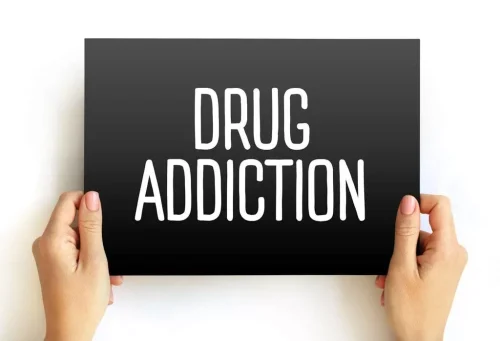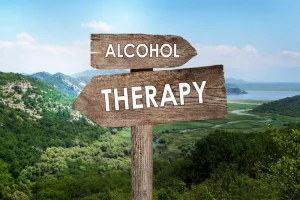
My patients are aged 18 and over and typically belong to higher socio-economic groups; around half of them have private medical plans, while the others are self-paid. In terms of addiction, around 85 percent of the work I do is related to alcohol. Many of my clients with depression often have an underlying alcohol problem, which they don’t initially disclose but emerges as time goes on. Research shows people who have a supportive social network are more likely to remain alcohol-free after withdrawal. Those with a wider circle of support have a better chance of staying sober.
More on Substance Abuse and Addiction

Since alcohol floods the brain with dopamine, which influences how we feel pleasure, the “rush” of this feel-good chemical can cause anxiety to flare up as soon the levels begin to drop. Over time, this can turn into a detrimental cycle of drinking, feeling anxious, and then drinking more to reinstate a feeling of calm. That’s why alcohol consumption can lead to reduced mood, increased anxiety, and even depression. “There’s a high correlation between alcohol use disorder and other mental disorders, including depression and anxiety,” Dr. McGrath explains. “When you stop using alcohol, it really benefits your overall mental health.”
Short-term benefits of Dry January

For people at low risk of complications, an office visit to your primary care provider, along with at-home monitoring and virtual office visits, may suffice. People at high risk of complications should enter a short-term in-patient taking a break from alcohol detox program. People who drink daily or almost every day should not be left alone for the first few days after stopping alcohol. Withdrawal symptoms can quickly go from a bad hangover to a serious medical situation.
Breaking The Booze Habit, Even Briefly, Has Its Benefits

If your liver has taken a hit from prolonged alcohol use, there are ways to give it — and the rest of your body — a break. Your liver has enzymes that work like special tools to help metabolize (break down) different toxins that enter your body, such as alcohol. Common medications include benzodiazepines to help treat https://ecosoberhouse.com/ symptoms like anxiety, insomnia, and seizures. You might also take anti-seizure meds and antipsychotics, along with other drugs. For more than a decade, “Dry January” has given people a reason to reconsider their relationship with alcohol. It’s also important to note that delirium tremens can be life-threatening.
What happens to your body when you stop drinking?
This NIAAA guide can help you find a program or approach that’s right for you. So far, there are a handful of studies that point to some benefits of abstinence for even moderate drinkers — in addition to the widely recognized benefits for people who have alcohol use disorder. And while there is virtually no downside to taking a break from drinking alcohol — or quitting altogether — science is just beginning to study the ways abstinence might be good for you. It can be helpful to make a plan ahead of time for how to handle a relapse. For example, some people choose to write a list of reasons why they want to stop drinking alcohol, and revisit the list to remind themselves after a relapse.
- You can drink for years and years until eventually your liver starts to become inflamed, without any pain, which silently proceeds to fatty liver disease and then to cirrhosis.
- In the far corner, about a dozen women in a group are clearly enjoying themselves too, but they are not drinking alcohol.
- When you quit alcohol after using it consistently, your body spends about a week to a week and a half adjusting to its absence.
Health Alerts from Harvard Medical School

- For example, patients of all ages who come to us drinking heavily have exceedingly high blood pressure.
- And, for some people, the financial savings could be substantial.
- Stopping alcohol can seem daunting, especially if you use it frequently or if it is a central part of your social life.
- It can also increase your risk for many different types of cancers.
- About 41% of U.S. adults surveyed said they intended to give Dry January a try in 2023.
Physical Health Benefits: Weight Loss and Lower Blood Pressure
- Focusing on the immediate, short-term effects of stopping drinking can provide tangible milestones along the path to long-term sobriety.
- In my opinion, abnormal liver function is a sign to stop drinking completely, immediately.
- The members of this club work out, have demanding jobs and simply don’t want to feel foggy or hungover anymore.
- If you’ve decided to take a break from drinking alcohol, you’re not alone.
- Stopping alcohol will reduce the number of empty calories that you consume.
- Stopping alcohol is worth it, but it can be an uncomfortable and even dangerous experience.

